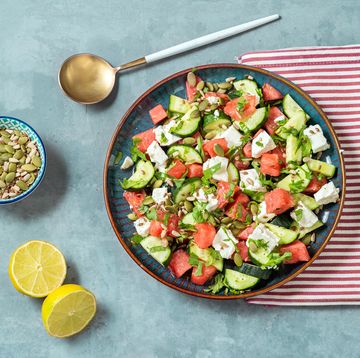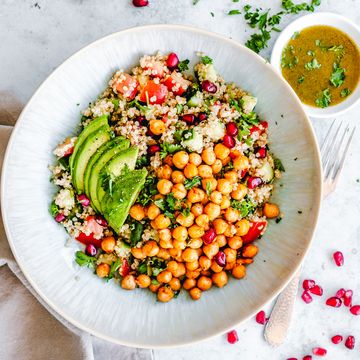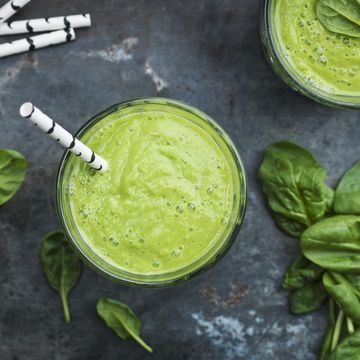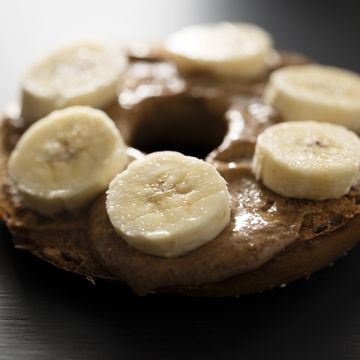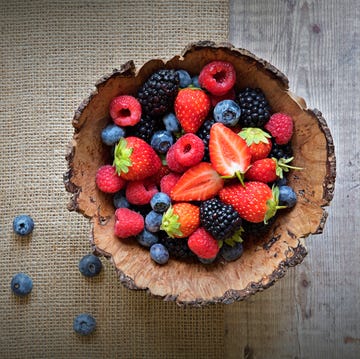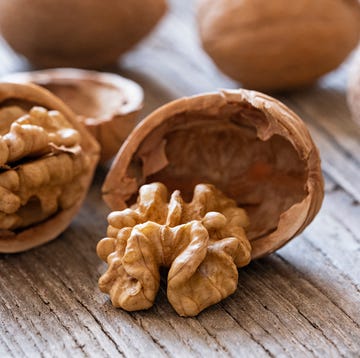If it's good enough for marathon legend Eliud Kipchoge, then it's good enough for you. What are we talking about? Porridge.
Porridge – or oatmeal – is a go-to breakfast consumed regularly and avidly by runners of all varieties. Simple yet delicious, porridge is also a canvas for culinary creativity and can be switched up by all kinds of toppings, helping you to fend off breakfast boredom. And, most importantly for runners, porridge is gentle on the tummy and provides plenty of energy to keep you well fuelled for those long runs.
But, is this oat-based morning meal actually good for you? We delve into the nutritional facts to find out.
What is porridge?
Porridge, in its simplest form, is a combination of oats and water or your choice of milk, slowly cooked together. 'Different spices, fruits and sweetness can be added to this combination according to an individual’s taste,' says Lily Chapman, performance coach and sport and exercise nutritionist at P3RFORM. While the nutritional profile of oats may vary according to brand, type or the way they've been processed, Chapman says that a standard 40g bowl of porridge with water – minus any toppings – would provide you with the following:
- 148 calories
- 4.8g protein
- 22.4g carbohydrates
- 0.4g sugar
- 4.3g fibre
- 3.4g fat
This makes porridge, in its purest oat form, a low-sugar, carbohydrate-rich food that's ideally suited to fuelling longer or harder runs and training sessions.
What are the benefits of porridge for runners?
Porridge provides energy
When you want to get through a run – or a morning of meetings, or your day-to-day errands – a warm bowl of porridge will help to see you through.
'Carbohydrates are the main nutrient to fuel moderate to intense exercise bouts,' says Chapman. 'Diets low in carbohydrate have been shown to reduce mental focus, productivity and exercise performance and increase the chances of mood swings. As porridge is a high source of carbohydrate, the inclusion of it within your diet could be helpful at periods when energy is needed – such as for everyday work tasks, or before a gym session or run.'
Porridge helps you to feel fuller for longer
If you find yourself snacking more than you'd like throughout the day, then eating porridge could help you to curb those cravings – which is particularly advantageous if you're looking to lose weight.
'As porridge contains a high amount of fibre, as well as a moderate amount of protein, its speed of digestion is quite slow,' says Chapman. 'With this, you may feel fuller for longer following the consumption of porridge – which is great if you're seeking to reduce food cravings throughout the day, lose some body fat, or have a full day of work meetings.'
Porridge is great for your gut health
While the bacteria in your gut might not be the first thing you think about when you make your breakfast, it's important to keep them happy and healthy – and porridge can help to do that.
'The bacteria in our gut are living organisms and, as such, need substance to survive – the preferred component being fibre,' says Chapman. 'When bacteria digest fibre, they produce short-chain fatty acids that nourish the gut bacteria, improve immunity and prevent inflammation. As oats are a decent source of fibre, it may be a nice idea to include them in your diet to help with your gut health. Aim to eat at least 30g of fibre a day to help with this.'
Porridge could help to lower your cholesterol
'A number of studies have found a link between oats and cholesterol, mainly due to beta-glucan, a fibre that has been associated with cholesterol-lowering effects,' explains Chapman.
However, it's worth taking this with some caution and realising that porridge is not a standalone solution to lowering cholesterol.
'It's important to remember that your body does need cholesterol to perform certain jobs such as cell regeneration and hormonal activity, and porridge is not the only food choice with a decent nutritional profile,' continues Chapman. 'So, focusing on a varied wholefood approach instead of exclusively on porridge is key.'
What is the healthiest way to eat porridge?
Chapman says that she never tends to label foods as 'healthy' or 'unhealthy', as she believes that any food can fit into your health and fitness goals.
But, if you do have a specific fitness aim – such as losing weight or gaining muscle mass – then you will need to pay closer attention to what you eat. 'It's key to try and opt for nutritionally dense choices to help provide the body with all the essential nutrients needed to succeed,' says Chapman.
With that in mind, it's worth making tasty but tactical decisions when it comes to your porridge toppings. Go too heavy on toppings that are high in sugar or saturated fat, for instance, and you could negate the health benefits of the porridge buried beneath them.
'Find what suits you and your current goals – there's no specific food that's a dietary silver bullet,' advises Chapman. 'If you're planning to go on a long run, it may be a good idea to add toppings such as agave syrup and bananas for an added dose of carbohydrates, or to top your porridge with peanut butter and cook it with milk for that extra protein kick.'
Why not stir in a scoop of one of the best protein powders for an additional protein hit too?
What are the alternatives to porridge?
Newsflash: not everybody likes porridge. If you are one of these non-porridge eating people, then you are by no means less of a runner or unable to enjoy a nutritious breakfast. If you'd rather overlook the oats, here are a few other breakfast options for you to try.
Toast
A staple. Two slices of wholegrain toast will load you up with around 30g of carbohydrate, making it a good breakfast option if you want something quick and easy to consume. You can of course then tart up your toast with condiments – like peanut butter or jam, or ideally both combined – or foods such as avocado, which is high in unsaturated fats, or protein-rich eggs.
Bagels
A bagel is arguably an even better choice than toast, providing around 50g of quick-release carbohydrate alone. The white flour used in bagels makes them easier to digest – which is always a green flag for runners – and you can still embellish them with your favourite healthy toppings.
Smoothies
If you can't quite face something solid in the morning – especially if it's early doors before a run – try a liquid breakfast in the form of a fresh, vitamin-rich fruit smoothie. Bananas are a great source of carbohydrate and an ideal addition to a morning smoothie. Adding a nut butter or natural yoghurt brings substance and a good dose of protein to the smoothie mix, too, which is particularly good post-run.
Muesli and granola
If it's the texture or temperature of porridge that puts you off, then other oat-based breakfasts could give you all the benefits of that grain in a different guise. Muesli, crunchy granola or cereal-based energy bars often combine oats with other grains, seeds, dried fruits, nuts and natural sweeteners like honey, which together offer both slow-burn energy and fast-release sugars – not to mention a great flavour punch. You can find lots of options in the supermarkets, or try your hand at making your own.





